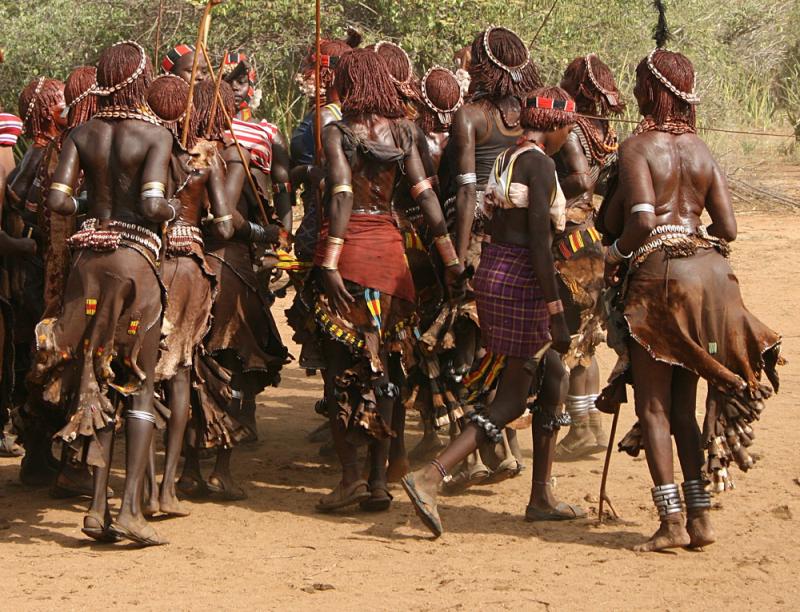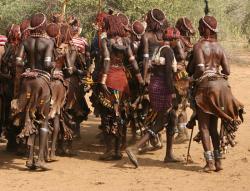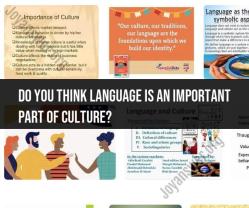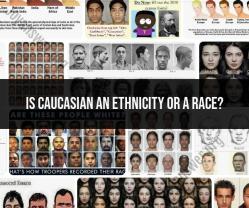What are some of the traditions of Ethiopia?
Ethiopia has a rich cultural heritage that encompasses diverse traditions, customs, and practices. The country's long history, ethnic diversity, and unique geographical features contribute to the richness of its cultural tapestry. Here are some notable traditions of Ethiopia:
Coffee Ceremony:
- The Ethiopian coffee ceremony is a significant cultural tradition. It involves a ritualistic preparation of coffee beans, roasting them, grinding them, and brewing the coffee. The ceremony is often a social event, bringing people together to enjoy coffee and conversation.
Injera and Ethiopian Cuisine:
- Injera is a sourdough flatbread that is a staple of Ethiopian cuisine. It serves as a base for various stews and dishes. Ethiopian cuisine is known for its distinctive flavors, including the use of spices and unique spice blends.
Timkat (Epiphany) Celebration:
- Timkat is a major religious celebration in the Ethiopian Orthodox Tewahedo Church, marking the baptism of Jesus Christ. The festivities include colorful processions, music, and reenactments of the baptism.
Meskel (Finding of the True Cross):
- Meskel is a religious and cultural festival that commemorates the discovery of the True Cross by Queen Helena, the mother of Emperor Constantine. The celebration includes the lighting of a large bonfire called the "Demera."
Diverse Traditional Music and Dance:
- Ethiopia has a rich musical heritage with diverse traditional music styles and instruments. Traditional dances are an integral part of cultural celebrations and ceremonies, often accompanied by rhythmic music and vibrant costumes.
Cultural Clothing:
- Traditional Ethiopian clothing varies across regions and ethnic groups. The clothing is often colorful and made from handwoven fabrics. The way garments are draped and adorned can signify cultural identity and social status.
Unique Alphabet (Ge'ez Script):
- Ethiopia has its own ancient script known as Ge'ez, which is used for writing the Amharic language. The script is distinct from those used by neighboring countries and has historical and cultural significance.
Bull Jumping (Hamar Tribe):
- Among the Hamar people in the Omo Valley, a traditional rite of passage involves young men proving their courage by jumping over a line of bulls. This ceremony is known as bull jumping and is a significant cultural practice.
Lip Plates (Mursi Tribe):
- The Mursi people, also in the Omo Valley, are known for their distinctive lip plates. Young girls have their lower lips pierced and gradually stretch them to accommodate decorative plates, a practice considered a symbol of beauty.
Habesha Kemis (Traditional Dress):
- The Habesha Kemis is a traditional dress worn by Ethiopian women. It is often made from handwoven fabric and features colorful embroidery. The dress is worn during special occasions and celebrations.
Ark of the Covenant:
- The Ark of the Covenant is a central religious symbol in Ethiopia, believed to be housed in the Church of St. Mary of Zion in Aksum. Pilgrims from various parts of the country visit the church, adding a spiritual dimension to Ethiopian culture.
These traditions reflect the cultural diversity and vibrancy of Ethiopia, making it a unique and fascinating destination with a rich cultural heritage.
Cultural richness: Exploring the traditions of Ethiopia
Ethiopia is a country with a rich and diverse culture, and its traditions are as varied as its people. Ethiopian traditions are rooted in the country's long history, its diverse ethnic groups, and its unique religious beliefs.
Some of the most well-known Ethiopian traditions include:
- Coffee ceremony: The Ethiopian coffee ceremony is a complex and ritualized process that is an important part of Ethiopian culture. The ceremony is typically performed by a woman, and it involves roasting, grinding, and brewing coffee beans. The coffee is then served to guests in small cups, and it is accompanied by a variety of snacks and pastries.
- Music and dance: Ethiopia has a rich tradition of music and dance. Ethiopian music is known for its complex rhythms and melodies, and Ethiopian dance is known for its energetic and acrobatic movements.
- Food: Ethiopian food is known for its unique flavors and spices. Some of the most popular Ethiopian dishes include injera (a flatbread made from teff), wat (a stew made from meat or vegetables), and tibs (stir-fried meat or vegetables).
- Holidays: Ethiopia has a number of unique holidays, including Enkutatash (Ethiopian New Year), Meskel (Festival of the Cross), and Timket (Epiphany). These holidays are typically celebrated with elaborate feasts, music, and dance.
Historical tapestry: Ethiopia's traditions in the context of its past
Ethiopian traditions are deeply rooted in the country's long and rich history. Ethiopia is one of the oldest countries in the world, and its culture has been shaped by a number of different influences, including the Axumite Empire, the Ethiopian Orthodox Church, and the various ethnic groups that have lived in the country over the centuries.
For example, the Ethiopian coffee ceremony is thought to have originated in the Axumite Empire. The Ethiopian Orthodox Church has also played a major role in shaping Ethiopian traditions, such as the celebration of Timket and the importance of family and community in Ethiopian culture.
Religious influences: How faith shapes Ethiopian traditions
Religion plays a major role in Ethiopian culture, and Ethiopian traditions are deeply influenced by faith. The Ethiopian Orthodox Church is the largest religious group in Ethiopia, and its teachings have a significant impact on Ethiopian culture.
For example, the Ethiopian Orthodox Church teaches that the body is a temple of the Holy Spirit, and this teaching is reflected in Ethiopian traditions such as the importance of cleanliness and the avoidance of certain foods and activities.
Celebratory practices: Festivals and events that define Ethiopian culture
Ethiopians love to celebrate, and the country has a number of unique festivals and events throughout the year. These festivals and events are an important part of Ethiopian culture, and they provide opportunities for Ethiopians to come together and celebrate their shared heritage.
Some of the most popular Ethiopian festivals and events include:
- Enkutatash: Enkutatash is the Ethiopian New Year, and it is celebrated on September 11th or 12th of each year. Enkutatash is a time for families and friends to come together and celebrate the new year with food, music, and dance.
- Meskel: Meskel is the Festival of the Cross, and it is celebrated on September 27th of each year. Meskel commemorates the discovery of the True Cross by Saint Helena in the fourth century AD.
- Timket: Timket is the Ethiopian Epiphany, and it is celebrated on January 19th of each year. Timket commemorates the baptism of Jesus Christ in the River Jordan.
Contemporary expressions: Modern adaptations and interpretations of Ethiopian traditions
Ethiopian traditions are constantly evolving, and there are a number of contemporary expressions of Ethiopian culture that adapt and interpret traditional practices in new and innovative ways.
For example, some Ethiopian artists are using traditional Ethiopian music and dance to create new and exciting forms of art. Other Ethiopian artists are using traditional Ethiopian clothing and textiles to create modern and fashionable designs.
Ethiopian traditions are a vital part of Ethiopian culture, and they continue to evolve and adapt to the changing needs and aspirations of the Ethiopian people.









